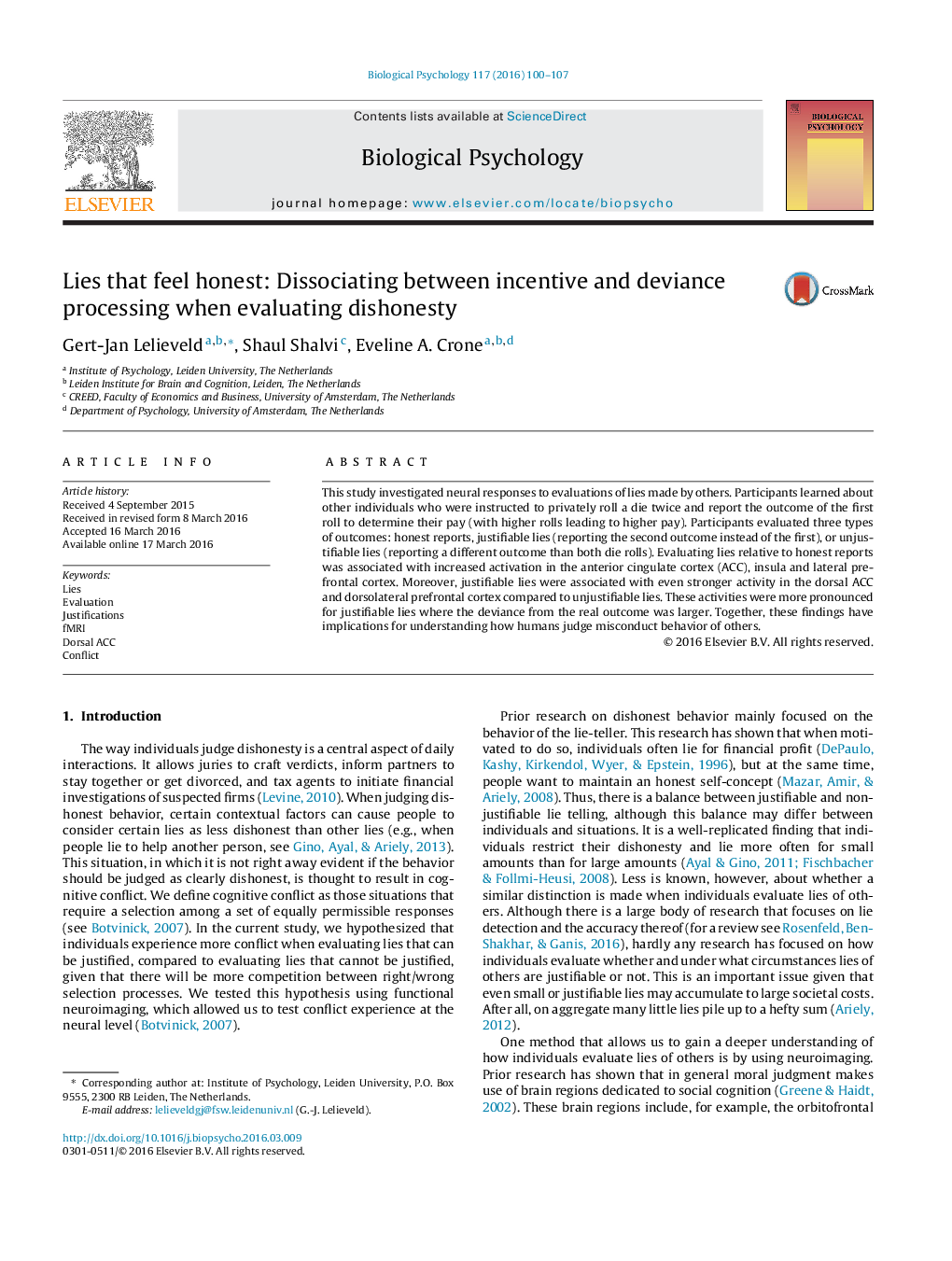| Article ID | Journal | Published Year | Pages | File Type |
|---|---|---|---|---|
| 920702 | Biological Psychology | 2016 | 8 Pages |
•We investigated how people evaluate lies that can and cannot be justified.•We tested two hypotheses: the incentive and the deviance hypothesis.•Justified lies were considered less dishonest compared to unjustified lies.•We found dorsal ACC and dlPFC activation for justifiable lies with a large deviance.•These results support the notion that justifiable lies feel somewhat honest.
This study investigated neural responses to evaluations of lies made by others. Participants learned about other individuals who were instructed to privately roll a die twice and report the outcome of the first roll to determine their pay (with higher rolls leading to higher pay). Participants evaluated three types of outcomes: honest reports, justifiable lies (reporting the second outcome instead of the first), or unjustifiable lies (reporting a different outcome than both die rolls). Evaluating lies relative to honest reports was associated with increased activation in the anterior cingulate cortex (ACC), insula and lateral prefrontal cortex. Moreover, justifiable lies were associated with even stronger activity in the dorsal ACC and dorsolateral prefrontal cortex compared to unjustifiable lies. These activities were more pronounced for justifiable lies where the deviance from the real outcome was larger. Together, these findings have implications for understanding how humans judge misconduct behavior of others.
